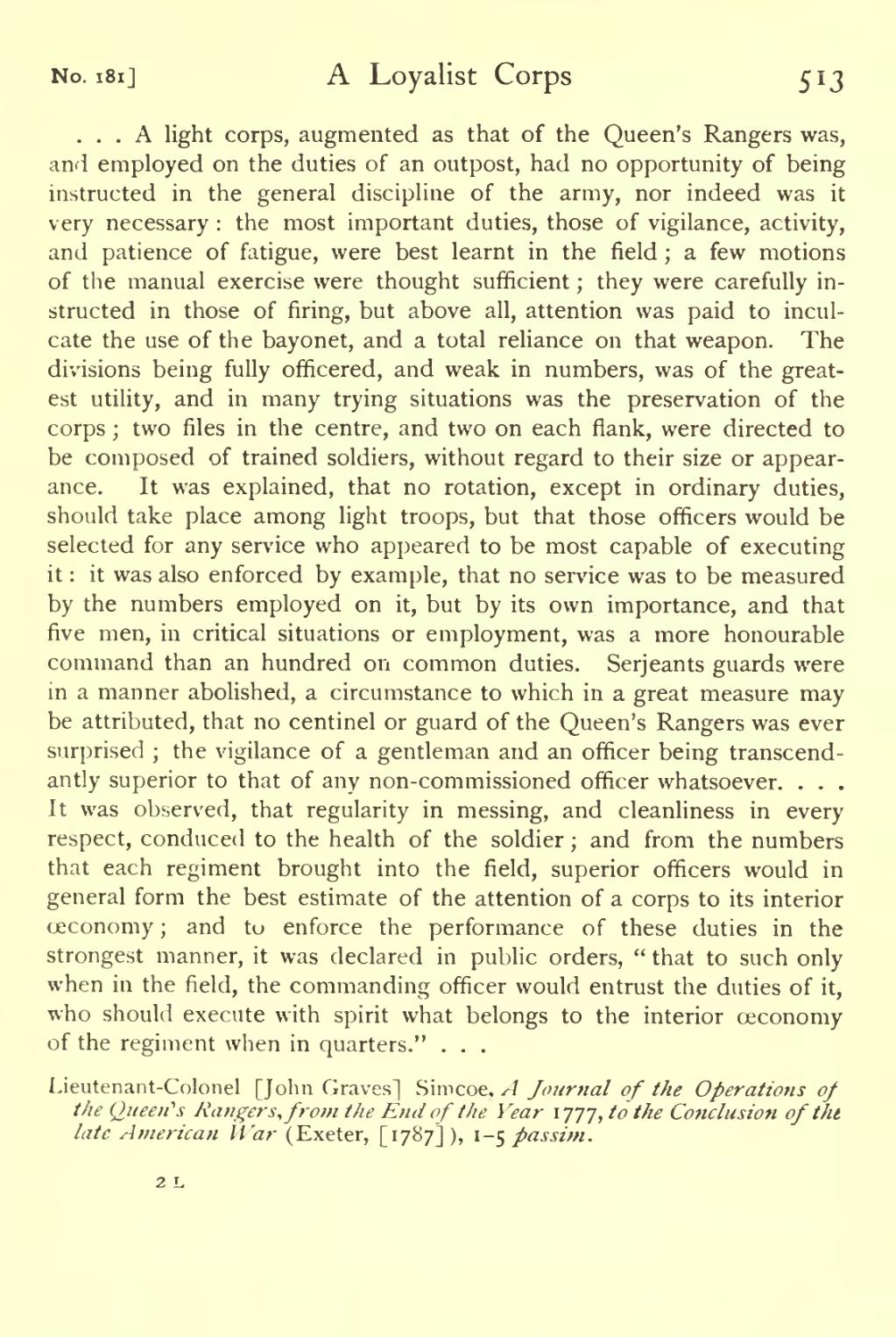. . . A light corps, augmented as that of the Queen's Rangers was, and employed on the duties of an outpost, had no opportunity of being instructed in the general discipline of the army, nor indeed was it very necessary : the most important duties, those of vigilance, activity, and patience of fatigue, were best learnt in the field ; a few motions of the manual exercise were thought sufficient ; they were carefully instructed in those of firing, but above all, attention was paid to inculcate the use of the bayonet, and a total reliance on that weapon. The divisions being fully officered, and weak in numbers, was of the greatest utility, and in many trying situations was the preservation of the corps ; two files in the centre, and two on each flank, were directed to be composed of trained soldiers, without regard to their size or appearance. It was explained, that no rotation, except in ordinary duties, should take place among light troops, but that those officers would be selected for any service who appeared to be most capable of executing it : it was also enforced by example, that no service was to be measured by the numbers employed on it, but by its own importance, and that five men, in critical situations or employment, was a more honourable command than an hundred on common duties. Serjeants guards were in a manner abolished, a circumstance to which in a great measure may be attributed, that no centinel or guard of the Queen's Rangers was ever surprised ; the vigilance of a gentleman and an officer being transcendantly superior to that of any non-commissioned officer whatsoever. . . . It was observed, that regularity in messing, and cleanliness in every respect, conduced to the health of the soldier ; and from the numbers that each regiment brought into the field, superior officers would in general form the best estimate of the attention of a corps to its interior oeconomy ; and to enforce the performance of these duties in the strongest manner, it was declared in public orders, "that to such only when in the field, the commanding officer would entrust the duties of it, who should execute with spirit what belongs to the interior œconomy of the regiment when in quarters." . . .
Lieutenant-Colonel [John Graves] Simcoe, A Journal of the Operations of the Queen's Rangers, from the End of the Year 1777, to the Conclusion of the late American War (Exeter, [1787] ), 1-5 passim.
